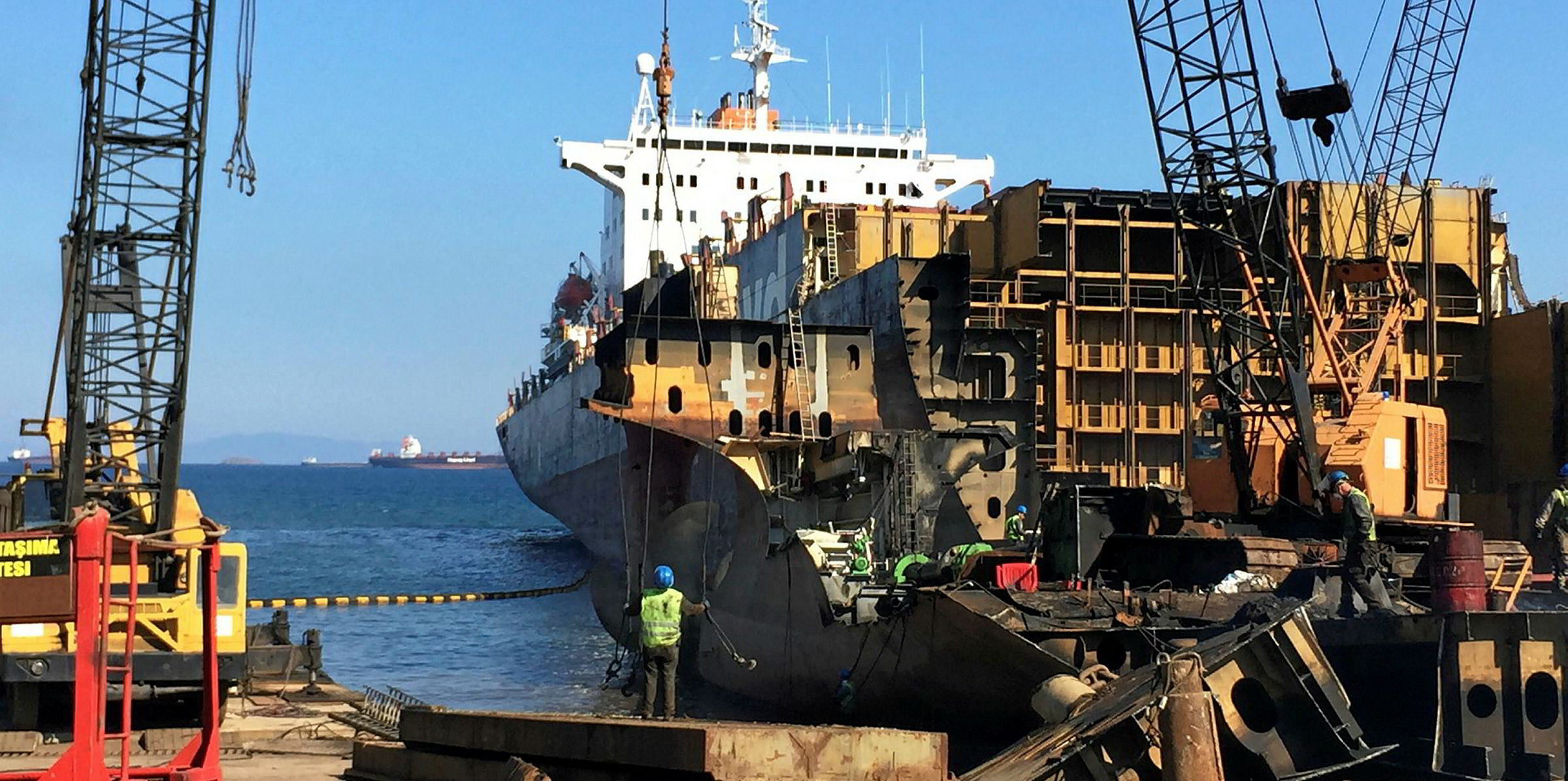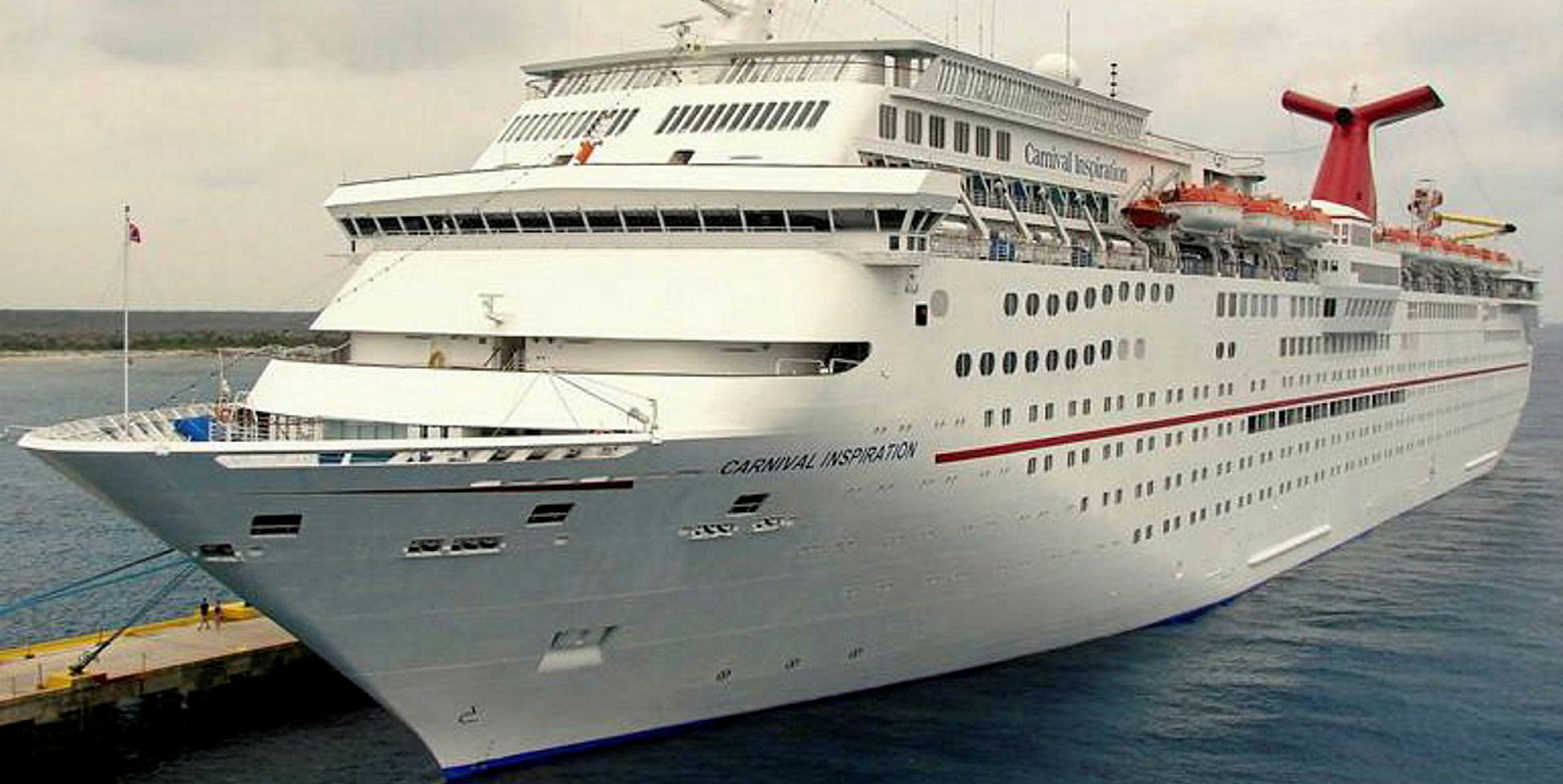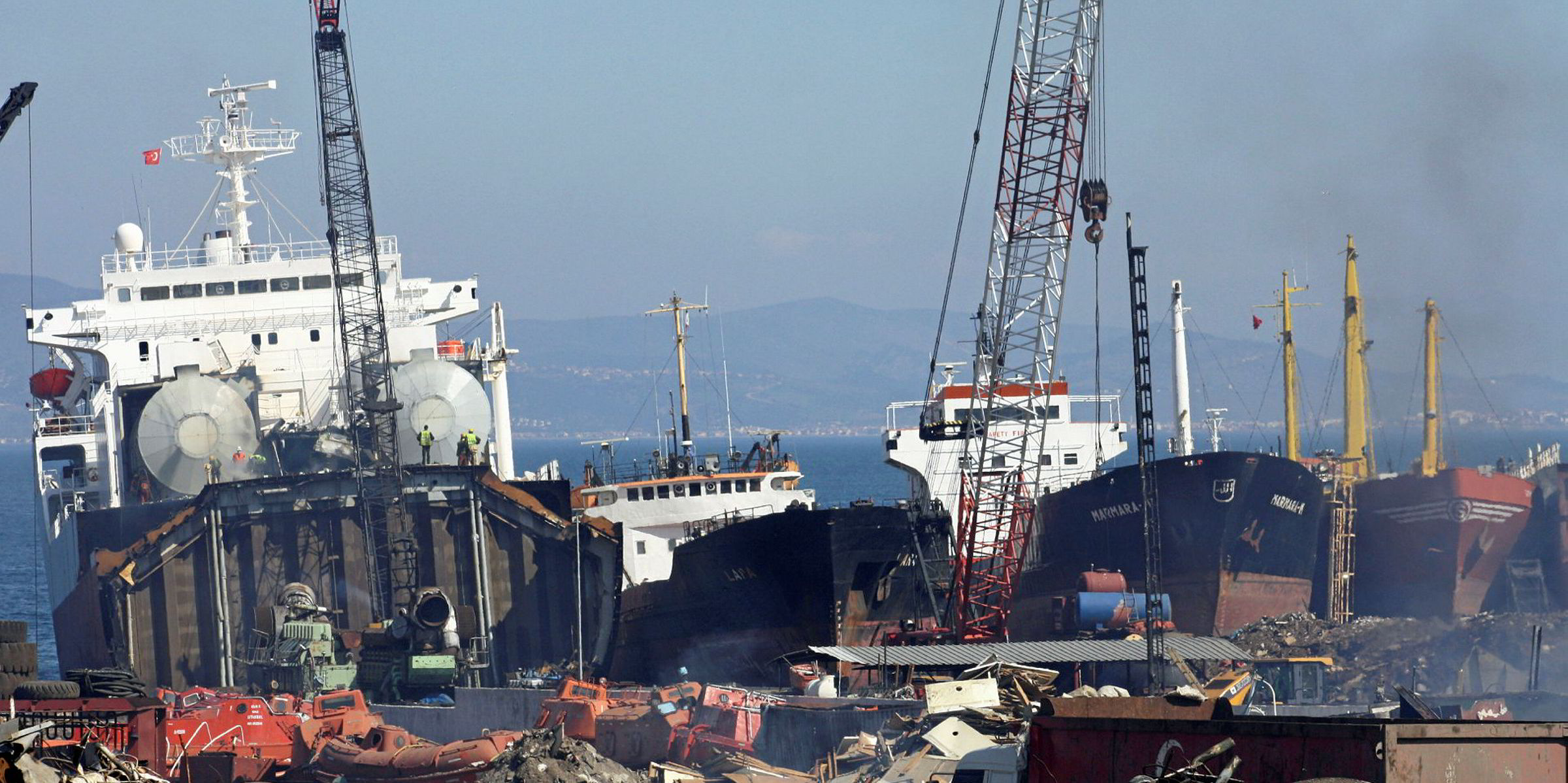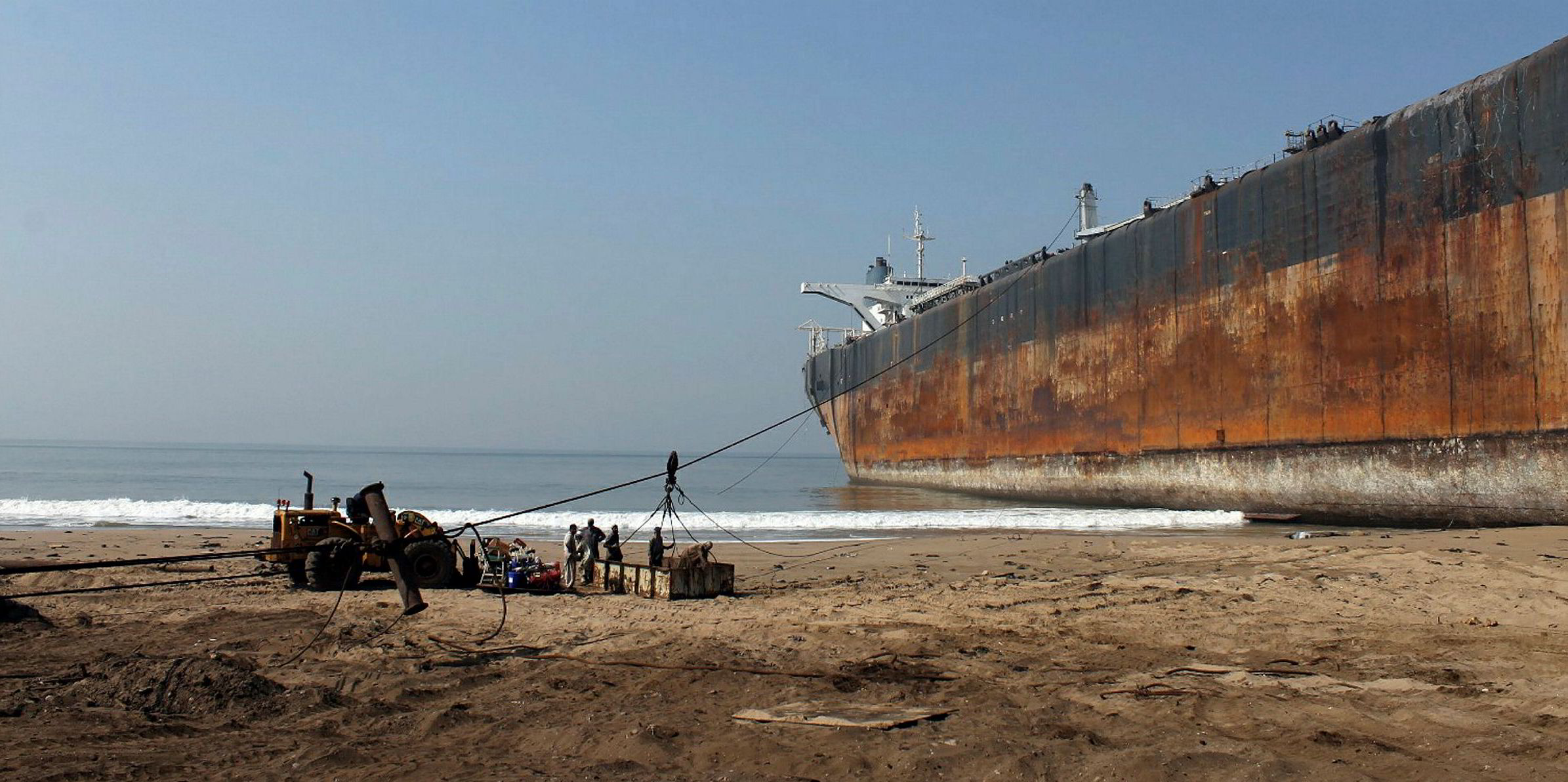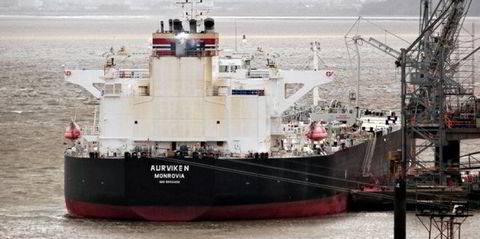A procession of cruiseship demolition sales to Turkey, encouraged by the economic fallout from the Covid-19 pandemic, has filled up its recycling facilities until the end of the year at least.
Cash buyers suggest it will take the country’s breaking yards that are approved to recycle European Union-flagged vessels — as required under its Ship Recycling Regulation (SRR) — at least three months to clear the current backlog.
European-flag owners will be lucky to secure a slot in Turkey this side of 2021, as ships are held at anchorage for months at Aliaga waiting for available space.
And the capacity shortage is only likely to worsen, as the major cruise lines plan further scrap sales.
The situation has made the EU’s promise that there would be sufficient capacity available to demolish the European-flagged ships look a little foolish, as critics have been quick to point out.
The backlog has added fuel to the argument that the EU has been short-sighted in not approving India’s leading yards as meeting the standards required to demolish European-flagged vessels.
But the International Ship Recycling Association (ISRA) does not share the view that there is a shortage of capacity.
Capacity sufficient
In a statement this week, the ISRA said: “The outbreak of Covid-19 has a tremendous global impact, including [on] the maritime industry.
“Nevertheless, the capacity of the European list of shiprecycling facilities is still sufficient to satisfy the rising supply of end-of-life ships that will be recycled.”
Only six of the EU-approved facilities are in Turkey, and there are another 30 approved facilities in northern Europe that are now available.
“Turkey’s EU-listed facilities are using their full capacity to accommodate the increased shipowner supply,” the ISRA argued. “Other EU-listed facilities have sufficient unused capacity — also for larger vessels. The general picture still shows overcapacity on shiprecycling facilities on the EU list.”
Question mark
But there is still a big question mark over whether European owners can realistically look at the Northern European yards to handle the overspill from Turkey.
Some suggest that the northern European yards are simply not large enough to cope with vessels above panamax size and cannot offer adequate commercial terms.
The result is likely to be that European-flagged owners will be left with no choice but to continue what they have been doing anyway and flag out, and end up recycling their ships in India.
The lack of recycling options will add to the negative sentiment that European owners are being punished rather than rewarded by their regulator
The lack of recycling options will add to the negative sentiment that European owners are being punished rather than rewarded by their regulator.
But remember it is still early days for the EU SRR, which entered into force in 2018.
Recycling capacity that can meet the EU’s standard is still under development.
If Green Yard’s recent acquisition of Kleven Verft is anything to go by then there is some belief that there is a commercially viable market for green recycling within Europe.
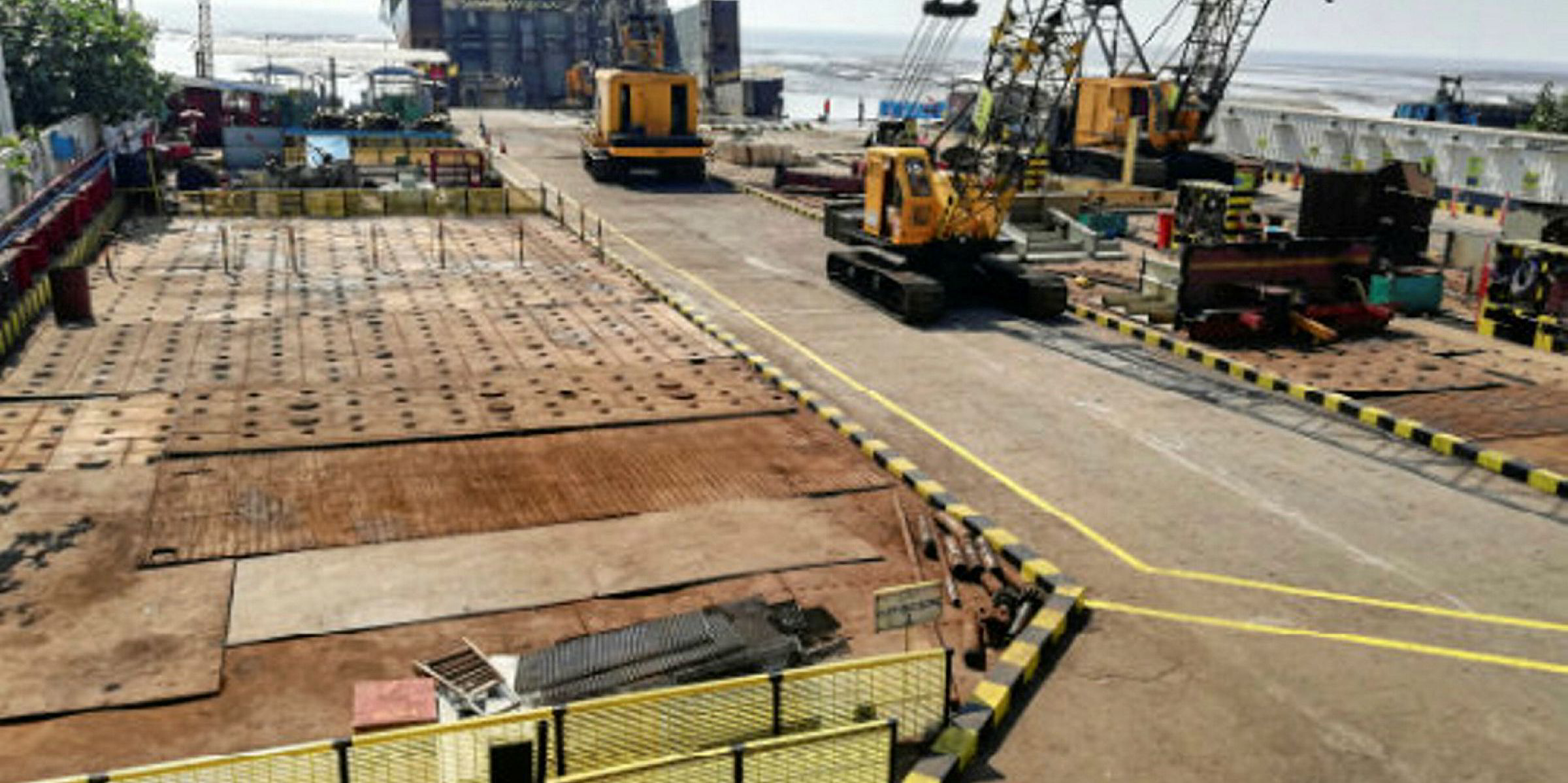
And there is still a chance that India has a part to play in dismantling European-flagged ships too.
Indian yards have been left with the understandable feeling that it does not matter what they do because Europe will likely never accept beaching yards to be adequate.
But the EU has made it absolutely clear that it is the technical areas, such as waste management and labour standards, which each yard needs to improve if they are to be accepted.
For now, there is a confusing three-tier market developing for owners to navigate through.
Tiered market
At one end is the strictly regulated market to demolish ships under EU SRR or the Basel Convention, then there is the commercial market for green recycling in India and finally the traditional largely unregulated industry, with a few exceptions, in Bangladesh and Pakistan.
There is an array of pricing available and, as evidenced by Pakistan this week, the least regulated yards are offering by far the most attractive prices.
There will be more difficult times ahead. There is not much hope of this mess untangling itself before the economic fallout from the pandemic and environmental regulation accelerates demand for recycling further.
An industry that governments are trying to closely regulate is starting to look increasingly chaotic.
